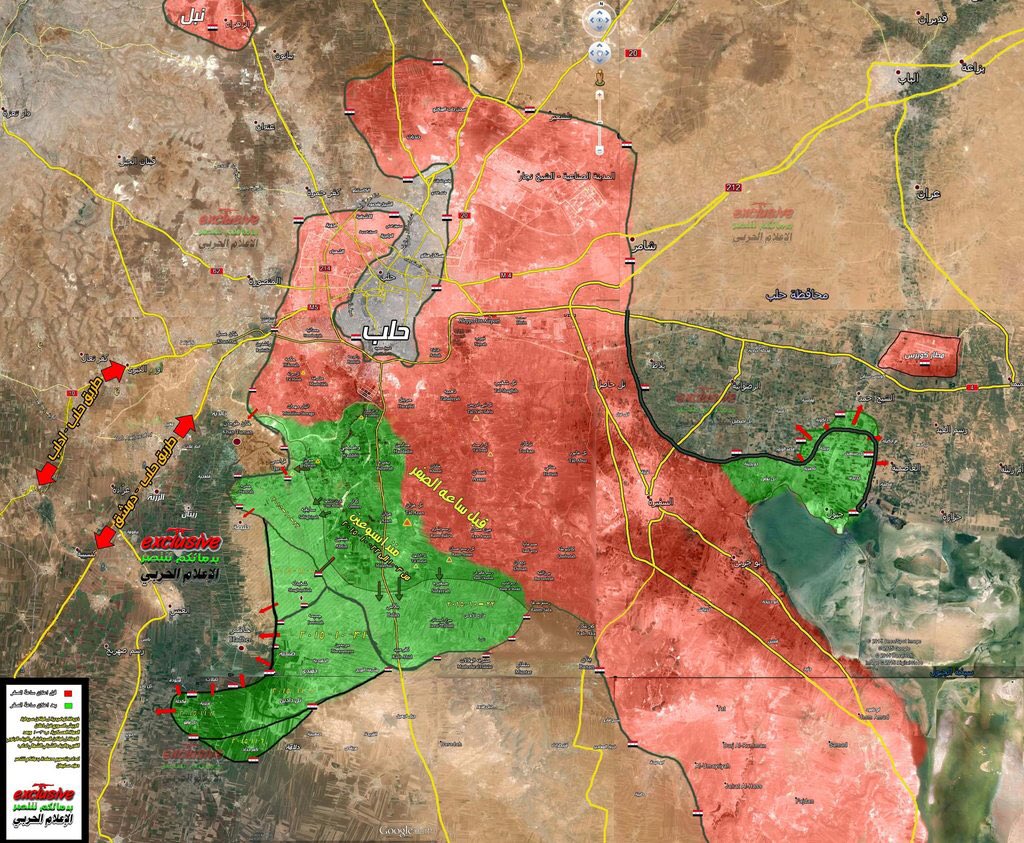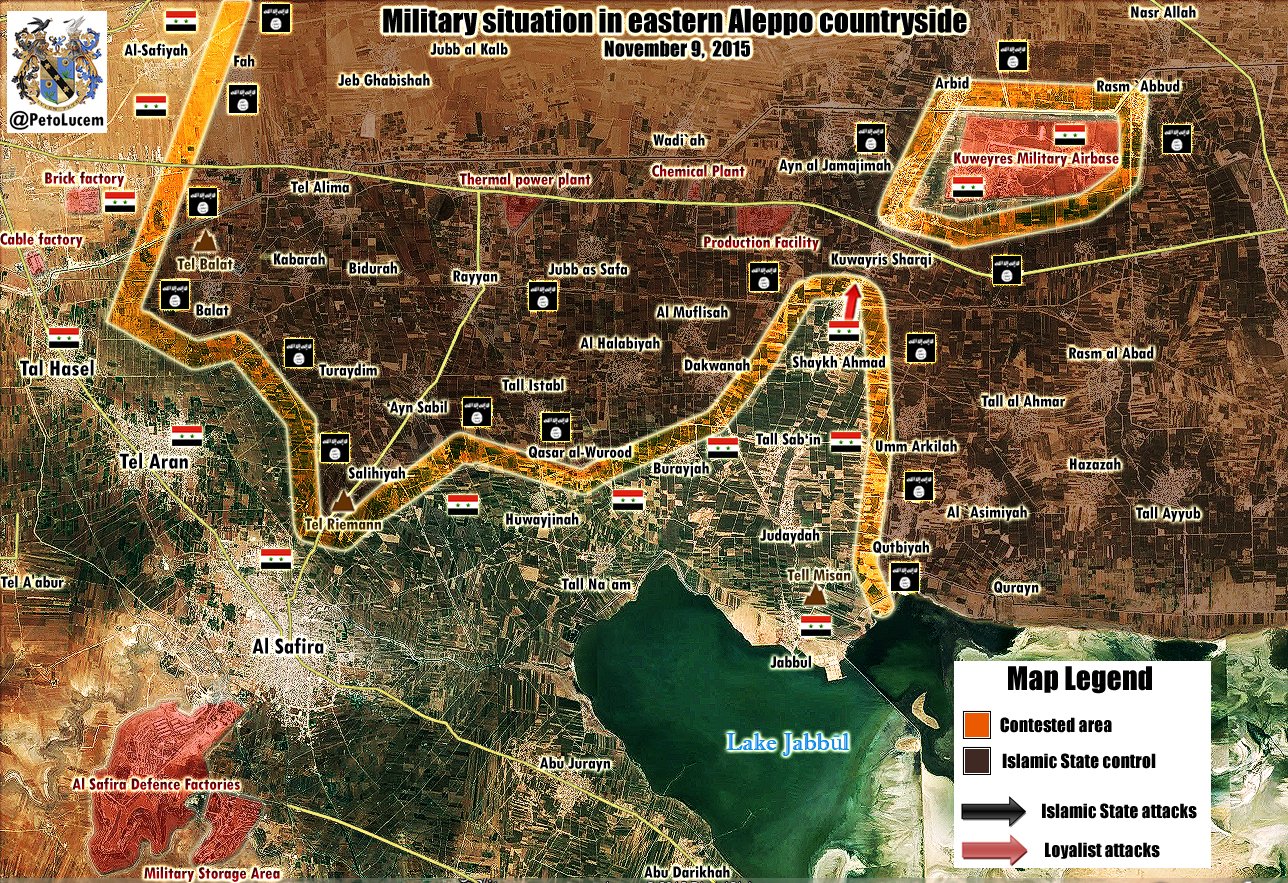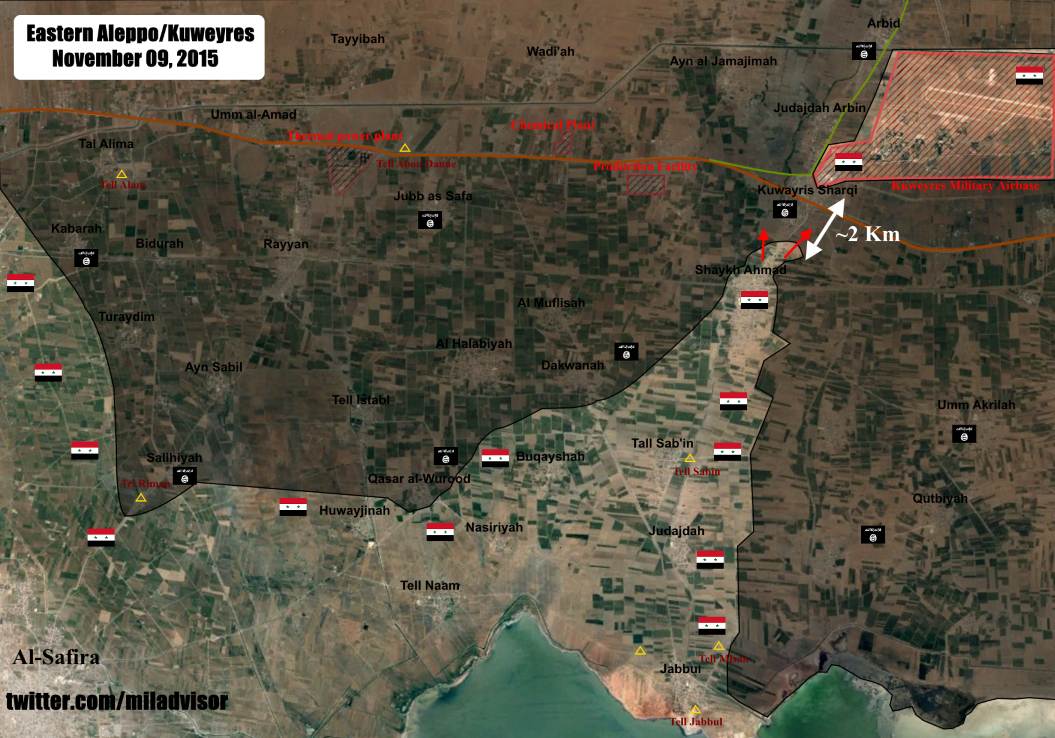Why in Syria killed so many generals and officers of the Iran's elite units?
As it became known, on November 7 in Aleppo, Syria under in combat with insurgents killed the general of the Revolutionary Guards of Iran Ali Shaliakar. And this is not the first Iranian military commander who was killed in the SAR during the conflict.
Tehran claimed that Iranian experts provide assistance to the Government of Syria solely consultative. However, reports from the fronts and statistics of losses over the past two months (only on open sources) tells a different story. Judge for yourself.
- 4-5 November in Syria killed five officers of the IRGC, the names of three known - Mohsen Fanus Kadir Silk and Ruhollah Kadrani;
- November 3, according to Iran.ru, in the battles of Aleppo killed five commanders of the IRGC - Seid Ali Alami, Izzat Suleiman Hamid Fatimi, Sajjad Hussein and Asadullah Soleimani;
- 24 October in Syria's northern province of Hama killed Brigadier General Revolutionary Guard Reza Hawari;
- October 23 at Aleppo killed a bodyguard of the former Iranian president, Mahmoud Ahmadinejad, a senior commander of the Revolutionary Guards Abdollah Bakeri Niyaraki. It was reported that he supported the commanders of the armed forces of the official Damascus and helped them to plan military operations against the radical "Islamic state";
- October 18, Iranian media reported that in the city of Ahwaz Funeral IRGC Brigadier Jabbar Darisavi killed in the performance of duty in Syria. It was noted that General Darisavi before sending an adviser to Syria was the commander of troops "Basij" in the Iranian province of Khuzestan.
- 13 October in Syria killed two Iranian Revolutionary Guards commander Farshad Gasunizade and Hamid Mohtarbans;
- 9 October on the outskirts of the city of Aleppo killed Iranian Revolutionary Guards Major General Hussein Hamdani. A senior military was in Syria as an advisor to the government and as one of the leaders of the operations of the elite unit of the Iranian "Al-Quds" (the experts call it the analogue of our GRU) in support of the Syrian government of Bashar al-Assad.
We note that recently commander of special forces, "Al-Quds" IRGC Qasem Soleimani, speaking to Iranian militants fighting in Syria, said that "Aleppo will be released at any cost, however high it may be." According to the Kurdish press, Soleimani reportedly said: "Iran's top management had ordered the release of Aleppo, even if it takes 100 thousand martyrs."
Why Syria killed many generals and officers (of course, this list - is far from complete)?
Professor of the Department of Oriental Studies of MGIMO Sergei Iranist Druzhilovsky notes that the eastern army different from the western mainly to the fact that the first important factor is faith.
- In the Islamic tradition, the Prophet Muhammad's grandson - Imam Hussein - is the title of "master of the martyrs" (in Iran - "the master of martyrs", as they say the Orientalists, the term "martyr" has been stained with the blood of innocent victims of the efforts of the Wahhabis). And the man who died for their faith, instantly likened to Imam Hussein, he became a national hero. For example, in Iran, even in taxis and shops can be found portraits of those who died in the Iran-Iraq war. But there are also people often leave advantageous firing positions and went on Iraqi positions in full growth.
Iranian generals can not sit deep in the rear. It is in our best not meet the brigade commander that from a military point of view - the correct and reasonable. But Iranian general must necessarily be in the spotlight. Considering that the Islamic Revolutionary Guards Corps, and the more "Al-Quds" - special forces as part of the IRIS - an elite unit of random people out there in the general's office not appointed.
All of them, there is no doubt, professionals and proved his right to be a general, but primarily because they have to honor the principle - "do as I do." Iranians are generally charged for victory at any cost. For example, when the Ayatollah Khomeini in August 1988 agreed to the termination of the war with Iraq, he said this decision was difficult for him - "how to drink a cup of poison."
In addition, the cause of death of Iranian officers and generals may be that they do a lot parade, competing with each other. For example, if one went to battle with advanced units, the second military commander may also decide on such a move, even if there is no military necessity.
On the side of the government troops are fighting al-Assad and IRGC units, and "Hezbollah" and the militia they support Russian aircraft, and would seem to progress on all parts of the front has to go every day, but there is - it is the result of weak. But the enemy from them - not whipping boys, and the people who are fighting for a long time. Several times since the Afghan. They just do not take a psychological attack, they themselves full of men who are willing to demonstrate such behavior in combat.
Plus, the Islamists are supported constantly: in the Saudi and Qatari money thrown them American, French, Israeli weapons and equipment, and at the same Iranians under the sanctions, there was little opportunity to replenish stockpiles. They, of course, has its own military-industrial complex - the only one in the Middle East, apart from Israel, but it does not have any modern gadgets such as laser guidance, and so on. D.
- Experts on different assessments of the Iranian military involvement in Syria. Someone says that Assad is fighting on the side of not less than three teams IRGC, someone notices that finding the division immediately be noticeable on a particular sector of the front ...
- Yes, to assess the extent of their involvement in the Syrian conflict is extremely difficult. In general, the Iranians say that if necessary, they are willing to put up a 20-million-strong army. Data on the number of Iranian Armed Forces closed, but in total (in the military system of the Iranian army and IRGC coexist, and they have their own army, air force and navy) - about 1 million people. Plus "Basij" - people's militia, founded by Ayatollah Khomeini in November 1979, which has become almost one of the branches of the armed forces of the IRGC (Commander of the "Basij" reports directly to the commander in chief of the IRGC and through operationally Chief of the General Staff of Iran and the High Commander ). Given that Iran's population - 80 million. People, it can be said that the manpower of its extremely high.
Another thing is that Tehran will not get involved in the conflict in full, it has its "red lines". For example, they will not take Karbala in Iraq, as it is - a holy city for Shiites: here is the tomb of Imam Hussein. In addition, the total Iranian interference in the war in Syria further undermine the position of Bashar Assad, because then everyone in the West will be screaming that he could not do anything in the country, but the Iranians - able. Again swell some new story. Therefore, Tehran prefers in this conflict their participation especially not to advertise.
Deputy Director of the Institute of Political and Military Analysis Alexander Khramchikhin says there are several reasons for the mass death of Iranian brigadier generals, including - shahidstva factor.
- Syria has advanced everywhere - so there is likely to die in any place large enough. But do not ignore the deficiencies in the system of command and control. I must say that the Iranians - not the best soldiers in the world. During the Iran-Iraq conflict, Tehran fought mainly by zavalivanija enemy corpses and won by a huge superiority in manpower. And who said that they are now something has changed for the better? Absolutely nothing. Even despite the fact that the Syrian conflict is only the Iranian elite fighting formation.
Also worth noting is that the "Brigadier General" - a title that has no analogues in Russia, something between a colonel and major general. This initial rank of general in a number of armies in the world, that is - senior officers.
Military expert, head of Eurasian integration and development of the SCO CIS Institute Vladimir Yevseyev sure: despite the fact that Iran has paid much attention to his army and Revolutionary Guards, Iran's elite units but not particularly strong in terms of the conduct of combined arms combat with artillery and aviation.
- Apparently, it's safe to say that in Syria there are three teams IRGC. In my view, the figure of 15 thousand soldiers - is plausible. And with such a degree of involvement in the Syrian conflict deaths of officers possible. This is the first.
Second, the IRGC generals serve as advisors at the Syrian brigades. They are forced to go on reconnaissance in the conditions of inability to provide reliable protection.
Third, because the officers and generals of the Revolutionary Guards act as advisers, it can not be excluded that they are under deliberate hunting. Rather, "the wind blows" on the part of the main sponsors of the militants in Syria - Saudi Arabia, Qatar and other stakeholders. In my opinion, this is indeed possible, as the mass death of officers and generals still looks very suspicious. So, in January of this year as a result of the Israeli Air Force attack in Syria was killed General of the Iranian Revolutionary Guards, Mohammad Aliullov DAAD.
Fourth: the combat capability of the Iranian army as a whole is not very high. Anyway, when we were fighting for Tikrit in Iraq in the spring of this year, killing many Iranian soldiers it is due to the fact that they had no experience of combined arms combat. My personal opinion - the level of training of Iranians lower than the Lebanese soldiers supported by Tehran "Hezbollah." Therefore, Iran has the great losses in Syria.
reference
A few years ago, "Al-Quds" for employs about 15 thousand people. But, experts say, probably for the last few years the elite formation was increased by the corresponding directions. "Al-Quds" consists of eight different departments, which are fixed for certain regions of the world. Including - and for covert operations. This is the Western countries; Iraq; Afghanistan, Pakistan and India; Israel, Lebanon and Jordan; Turkey; North Africa; countries of the Arabian Peninsula; former republics of the Soviet Union.

 Re: Syrian Civil War: News #3
Re: Syrian Civil War: News #3 Re: Syrian Civil War: News #3
Re: Syrian Civil War: News #3 Re: Syrian Civil War: News #3
Re: Syrian Civil War: News #3 Re: Syrian Civil War: News #3
Re: Syrian Civil War: News #3 Re: Syrian Civil War: News #3
Re: Syrian Civil War: News #3



 Re: Syrian Civil War: News #3
Re: Syrian Civil War: News #3 Re: Syrian Civil War: News #3
Re: Syrian Civil War: News #3 Re: Syrian Civil War: News #3
Re: Syrian Civil War: News #3
 Re: Syrian Civil War: News #3
Re: Syrian Civil War: News #3 Re: Syrian Civil War: News #3
Re: Syrian Civil War: News #3 Re: Syrian Civil War: News #3
Re: Syrian Civil War: News #3
 Re: Syrian Civil War: News #3
Re: Syrian Civil War: News #3
 Re: Syrian Civil War: News #3
Re: Syrian Civil War: News #3

 Re: Syrian Civil War: News #3
Re: Syrian Civil War: News #3 Re: Syrian Civil War: News #3
Re: Syrian Civil War: News #3
 Re: Syrian Civil War: News #3
Re: Syrian Civil War: News #3
 Re: Syrian Civil War: News #3
Re: Syrian Civil War: News #3 Re: Syrian Civil War: News #3
Re: Syrian Civil War: News #3 Re: Syrian Civil War: News #3
Re: Syrian Civil War: News #3 Re: Syrian Civil War: News #3
Re: Syrian Civil War: News #3 Re: Syrian Civil War: News #3
Re: Syrian Civil War: News #3 Re: Syrian Civil War: News #3
Re: Syrian Civil War: News #3 Re: Syrian Civil War: News #3
Re: Syrian Civil War: News #3
 Re: Syrian Civil War: News #3
Re: Syrian Civil War: News #3 Re: Syrian Civil War: News #3
Re: Syrian Civil War: News #3